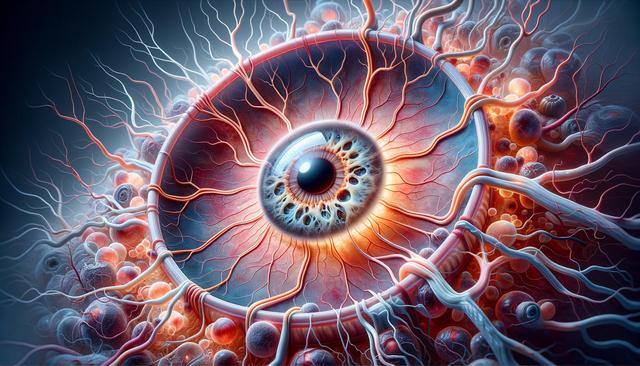Navigating Macular Degeneration: A Guide to Avoiding 5 Common Pitfalls Worsening Your Condition
Are you inadvertently aggravating your macular degeneration? Discover how to sidestep these five frequent missteps that may be intensifying your eye condition and learn how to safeguard your sight with informed choices.

Neglecting Regular Eye Exams
One of the most common and avoidable pitfalls for individuals with macular degeneration is skipping routine eye exams. Early detection and ongoing monitoring play a crucial role in managing this condition effectively. Age-related macular degeneration (AMD) often progresses gradually, and without regular check-ups, subtle changes in vision may go unnoticed until significant damage has occurred. Eye care professionals use specialized imaging tools to detect even minor shifts in retinal health, which can inform timely treatment plans. Waiting until symptoms become obvious may lead to irreversible vision loss.
Patients should aim to schedule comprehensive dilated eye exams at least once a year, or more frequently if advised by their healthcare provider. These check-ups allow for:
- Tracking progression of AMD
- Assessing the effectiveness of treatments
- Identifying complications early, such as fluid buildup or bleeding
By staying consistent with your eye care routine, you enhance the likelihood of preserving your central vision for longer.
Overlooking Dietary and Nutritional Factors
Nutrition plays a significant role in eye health, and poor dietary choices may accelerate the progression of macular degeneration. A well-balanced diet rich in antioxidants, vitamins, and minerals supports retinal function and can help slow down vision deterioration. Unfortunately, many individuals underestimate how heavily their eating habits influence their condition.
Some essential nutrients linked to macular health include:
- Lutein and zeaxanthin, found in leafy greens like spinach and kale
- Omega-3 fatty acids, present in fatty fish such as salmon and sardines
- Vitamin C, E, zinc, and copper, often included in specialized eye health supplements
Avoiding highly processed foods, excessive sugar, and trans fats is also crucial, as these can contribute to inflammation and oxidative stress in the retina. Consulting a healthcare provider or a nutritionist for personalized dietary advice can make a meaningful difference in managing AMD.
Ignoring Light Protection
Exposure to ultraviolet (UV) and high-energy visible (HEV) blue light may contribute to retinal damage, especially for those already diagnosed with macular degeneration. While conclusive evidence is still being explored, many eye care professionals recommend protective measures to reduce potential harm. Failing to protect your eyes from these light sources can potentially worsen the condition over time.
Protective strategies include:
- Wearing sunglasses labeled with 100% UVA and UVB protection
- Using hats with brims when outdoors
- Installing screen filters or using blue light-blocking glasses, especially during prolonged use of digital devices
These simple adjustments can help reduce strain and potential light-induced damage. Even if the benefit is incremental, it may support long-term visual preservation.
Continuing to Smoke or Exposure to Secondhand Smoke
Smoking is one of the most significant modifiable risk factors for macular degeneration. Tobacco smoke contains harmful chemicals that reduce blood flow to the retina and increase oxidative stress, both of which can accelerate the disease’s progression. Despite this well-established link, some individuals continue to smoke or remain exposed to secondhand smoke, unknowingly putting their vision at greater risk.
Quitting smoking or avoiding environments where smoke is present can yield immediate and long-term benefits for eye health. Those struggling to quit are encouraged to seek support from healthcare providers, counseling services, or community programs. Reducing exposure to smoke not only benefits your eyes but also enhances your overall wellbeing.
Remember, it’s never too late to make a positive change. Even after a diagnosis of AMD, quitting smoking can help preserve remaining vision and improve the effectiveness of other treatments.
Disregarding Symptom Changes and Delaying Treatment
Another crucial mistake is ignoring new or changing symptoms. Macular degeneration can evolve from dry to wet form, the latter of which progresses more rapidly and may result in sudden vision loss. Symptoms such as blurred central vision, distorted lines, or dark spots should never be dismissed as minor inconveniences. Delaying medical attention can reduce the efficacy of treatments designed to slow progression or manage complications.
Signs that require prompt evaluation include:
- Sudden increase in blurriness or vision distortion
- Wavy lines that should be straight
- Dark or empty areas in the center of vision
Timely intervention, such as injections or laser treatments, can be more effective when started early. Developing awareness and taking symptoms seriously is integral to preserving vision quality. Keep a journal or use a vision monitoring tool like an Amsler grid to track changes and share updates with your eye doctor regularly.
Conclusion: Taking Proactive Steps Towards Better Eye Health
Managing macular degeneration requires more than just medical treatment—it’s a continuous process of making informed lifestyle choices and staying alert to changes in your vision. By avoiding these five common pitfalls—neglecting eye exams, poor nutrition, unprotected light exposure, smoking, and dismissing symptoms—you can take meaningful steps toward protecting your sight. Empower yourself with knowledge, work closely with your healthcare providers, and make small but impactful changes that support your long-term visual health. While there may be no cure for AMD, proactive management can make a significant difference in maintaining your quality of life.